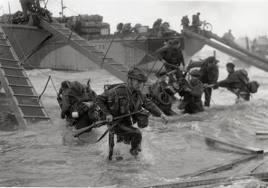"Commitment is what transforms a promise into reality." – Abraham Lincoln
Couples recovery is difficult in the aftermath of sexual betrayal. The repair process can be a long and winding road. Trust is blown in the marriage impacted by addiction. Fear is at an all time high on the part of both parties. What a betrayed spouse thought was about their marriage, isn’t.  Initially repair feels like an insurmountable mountain to climb. Anger, rage, fear and feelings of grief on the part of the betrayed spouse run high. For the addict’s part, initially, they feel a whole lot of fear and shame. The betrayed spouse tries to get at the truth and is approaching someone who has been hiding the truth of a somewhat secret and hidden life, sometimes for years. The tools to right the sinking ship are lacking in the beginning days.
Initially repair feels like an insurmountable mountain to climb. Anger, rage, fear and feelings of grief on the part of the betrayed spouse run high. For the addict’s part, initially, they feel a whole lot of fear and shame. The betrayed spouse tries to get at the truth and is approaching someone who has been hiding the truth of a somewhat secret and hidden life, sometimes for years. The tools to right the sinking ship are lacking in the beginning days.
The ability to live honestly, truthfully, and with integrity is necessary. How do you get there from here?
Boundaries are a key element to the repair process. Betrayed spouses are traumatized by their findings. They have no reason to trust. In early repair it is helpful to begin a recovery program. Couples that do best in the long-run engage in a process of repair that would include individual therapy, group therapy, and a 12-step program, for each person. Therapy is best delivered by therapists uniquely trained with sex addiction credentials (CSAT’s) Couples therapy might be contraindicated as a main treatment modality in the very early stages. Sex addiction is an intimacy disorder. Individuals need core skills initially. If repair focus is on the couple in the very beginning, it could serve to escalate behaviors when individuals do not have key skills to operate individually and keep themselves physically and psychically safe.
You know the saying “fences make good neighbors”?  That is true of boundaries in the marital repair process. Boundaries are fences that one erects to create safety so that paradoxically partners can move towards each other. The betrayed spouse has learned there has been a lot that has been hidden. An addict entering recovery will develop a plan of safety with their program and sponsor. Eventually, it would be helpful for the addict to begin to communicate what they are doing in early recovery as part of their program. Additionally the betrayed spouse will create their boundaries to help facilitate their own “rules of continued engagement” for safety. An example would be from the addict side of things: I have severed all relations with former affair partners, I commit to doing 90 meetings in 90 days, I agree to meet with my sponsor weekly, I make two phone calls to program peers to check in daily. In communicating this to their betrayed spouse, they are in essence communicating what it is their recovery program and what a contract to sobriety looks like. From the betrayed spouse side of the house boundaries might be to request non-contact with affair partners, no pornography in the house, or require a test for sexually transmitted diseases. They too can communicate things they are willing to do for their own support programs as well. My experience is early on, depending on the spouse, being part of a 12-step fellowship can be too overwhelming and sometimes further traumatizing. I encourage people to not “go it alone” but get plugged in to therapy or a supportive community as soon as possible. These suggestions are only meant to be examples. Depending on the acting out behaviors, one’s own need for safety, and the input of a recovery team, each person’s initial boundary plan and boundary needs will look differently.
That is true of boundaries in the marital repair process. Boundaries are fences that one erects to create safety so that paradoxically partners can move towards each other. The betrayed spouse has learned there has been a lot that has been hidden. An addict entering recovery will develop a plan of safety with their program and sponsor. Eventually, it would be helpful for the addict to begin to communicate what they are doing in early recovery as part of their program. Additionally the betrayed spouse will create their boundaries to help facilitate their own “rules of continued engagement” for safety. An example would be from the addict side of things: I have severed all relations with former affair partners, I commit to doing 90 meetings in 90 days, I agree to meet with my sponsor weekly, I make two phone calls to program peers to check in daily. In communicating this to their betrayed spouse, they are in essence communicating what it is their recovery program and what a contract to sobriety looks like. From the betrayed spouse side of the house boundaries might be to request non-contact with affair partners, no pornography in the house, or require a test for sexually transmitted diseases. They too can communicate things they are willing to do for their own support programs as well. My experience is early on, depending on the spouse, being part of a 12-step fellowship can be too overwhelming and sometimes further traumatizing. I encourage people to not “go it alone” but get plugged in to therapy or a supportive community as soon as possible. These suggestions are only meant to be examples. Depending on the acting out behaviors, one’s own need for safety, and the input of a recovery team, each person’s initial boundary plan and boundary needs will look differently.
As clinicians we do not recommend spouses police their addict spouses behaviors, but they can only trust what they do see. If they see them working the program as promised, it can be huge for trust building behaviors. I often say you can’t trust what you don’t see, but you can begin trusting by what you do see. Do you see your partner (addict or spouse alike) follow through on their actions promised? (I am not suggesting a disregard suspicious behavior. Policing and obsession of an addict’s behaviors are very different from holding accountability and maintaining safety.)
In early recovery there are a lot of emotions that run high. The paradox is there is much to be said, but in the raw emotional form, it cannot be heard. Therapists, sponsors, treatment group peers and 12-step peers (for spouses and addicts alike) can be great initial sounding boards to begin to package “data” and emotions that need to be heard. Repair happens when spouses can step into one another’s pain appropriately and empathize with their partner. It is a tall order very early on.
Honesty, heartfelt meaningful communication, and struggle in the human condition with a commitment to a process to strive for the best with others can be very healing. It is a risky proposition, but relationships of true connection, with struggle, to be open with others – warts and all, are the most meaningful things that life really has to offer. It can feel risky and vulnerable. Treatment groups and 12-step meetings are a safe place to begin that process before taking it back to our primary relationships.
Words need to be made into consistent action for trust to be regained. Connection, intimacy, and fidelity to a healing process (with love) really can conquer all.

 Bringing my mind to the present gave me presence of mind. Just for this week I am on task. Just until the leaf and the crack in the asphalt, I can do this. What a gift!
Bringing my mind to the present gave me presence of mind. Just for this week I am on task. Just until the leaf and the crack in the asphalt, I can do this. What a gift!
 Oh my, this was not in the plan! I turned to see that I could no longer see the horizon and could only see what felt like a wall of water coming towards us! We knew that we had to face into the direction of the swell to keep from being toppled. Thankfully we were able to maneuver properly. Along came another large swell that prevented us from seeing the horizon. It was so tall if felt as if it would break over top of us. For me, this was very frightening. I didn’t panic, but I found myself going through a protocol of water safety “what if” scenarios in my head. A third very large swell came along. I thought my husband would better know how to take care of himself than I would if we toppled, but I am sure I could make it, but there was a lot of trepidation!
Oh my, this was not in the plan! I turned to see that I could no longer see the horizon and could only see what felt like a wall of water coming towards us! We knew that we had to face into the direction of the swell to keep from being toppled. Thankfully we were able to maneuver properly. Along came another large swell that prevented us from seeing the horizon. It was so tall if felt as if it would break over top of us. For me, this was very frightening. I didn’t panic, but I found myself going through a protocol of water safety “what if” scenarios in my head. A third very large swell came along. I thought my husband would better know how to take care of himself than I would if we toppled, but I am sure I could make it, but there was a lot of trepidation!
 Life, as they knew or thought it to be, changes in an instant. PTSD from the trauma continues as they lose so much in the transaction of the discovery invasion. The spouse of the addict loses their way, their orientation to life, and the things they thought that were, aren’t. They lose the feelings of specialness to their spouse that was felt in the marriage. It is a betrayal like no other. For the addict there are casualties, as well. The addict is often caught by a surprise attack. They are left to defend the territory of addiction. They are lost in a world of disorientation from the occupation of the addiction and the shame of being discovered. It is a difficult labyrinth for both sides of the war at this point. I have both spouses and addicts contact me in the aftermath of discovery. I can assure you it is painful and the wounds are severe for both soldiers in the opposing armies.
Life, as they knew or thought it to be, changes in an instant. PTSD from the trauma continues as they lose so much in the transaction of the discovery invasion. The spouse of the addict loses their way, their orientation to life, and the things they thought that were, aren’t. They lose the feelings of specialness to their spouse that was felt in the marriage. It is a betrayal like no other. For the addict there are casualties, as well. The addict is often caught by a surprise attack. They are left to defend the territory of addiction. They are lost in a world of disorientation from the occupation of the addiction and the shame of being discovered. It is a difficult labyrinth for both sides of the war at this point. I have both spouses and addicts contact me in the aftermath of discovery. I can assure you it is painful and the wounds are severe for both soldiers in the opposing armies. Disclosure is not just coming clean in confession after the discovery. Disclosure must be planned and executed as carefully as the Normandy Invasion was planned for. To haphazardly just rush in could be disastrous for the campaign of winning the war. Disclosure should be done purposefully with the skill of trained therapists with experience of how to structure disclosure for the maximum chance of success.
Disclosure is not just coming clean in confession after the discovery. Disclosure must be planned and executed as carefully as the Normandy Invasion was planned for. To haphazardly just rush in could be disastrous for the campaign of winning the war. Disclosure should be done purposefully with the skill of trained therapists with experience of how to structure disclosure for the maximum chance of success. 



 One doesn’t do endurance sports without an occasional mishap from a passerby. Similar to the addict, I looked for something to blame. There was no one or no vehicle nearby. I saw a pine cone rolling across the sidewalk and I laughed. I turned around to pick it up. It was a perfectly shaped pine cone. I said to myself….”that’s perfect”, meaning the pine cone…and then I thought, “that’s perfect!” Yes, the NAME of the website I was thinking SexAddictTherapist.com was PERFECT! I ran home in excitement knowing I must investigate if that web domain name was available. I considered it a God-moment. Those, too, are necessary in recovery. The moment of insight when you know you are on the right path and what you must do.
One doesn’t do endurance sports without an occasional mishap from a passerby. Similar to the addict, I looked for something to blame. There was no one or no vehicle nearby. I saw a pine cone rolling across the sidewalk and I laughed. I turned around to pick it up. It was a perfectly shaped pine cone. I said to myself….”that’s perfect”, meaning the pine cone…and then I thought, “that’s perfect!” Yes, the NAME of the website I was thinking SexAddictTherapist.com was PERFECT! I ran home in excitement knowing I must investigate if that web domain name was available. I considered it a God-moment. Those, too, are necessary in recovery. The moment of insight when you know you are on the right path and what you must do.